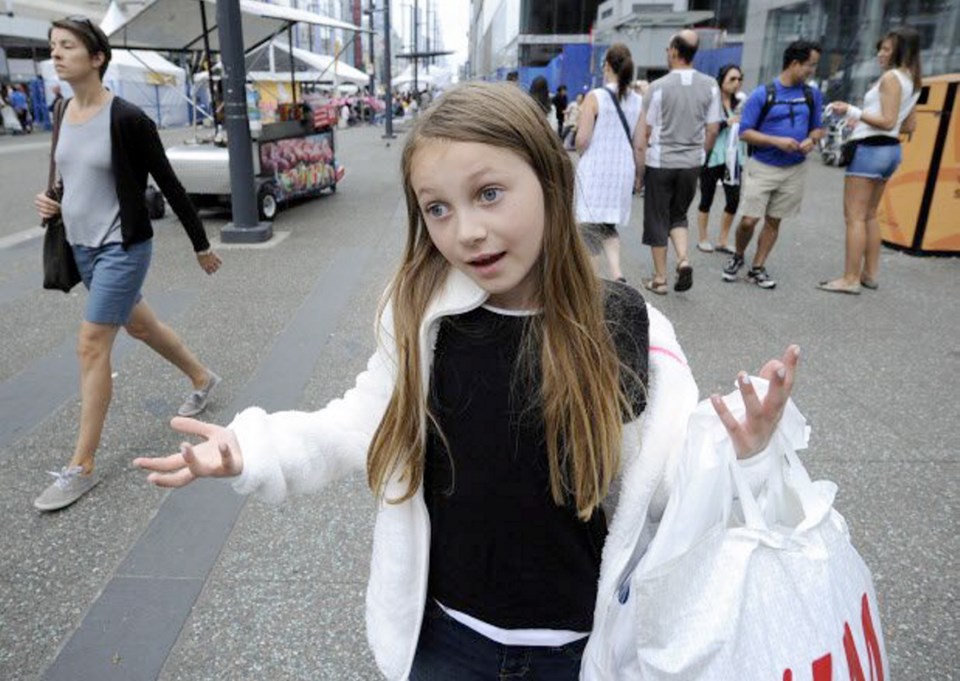Students who should be returning to school Tuesday will instead be protesting because schools are closed.
A final-week attempt to enable school to start on schedule failed miserably, and students and parents will be out in numbers to express their concern for a second shortened school year, after the dispute caused cancellation of two weeks of classes in June.
“We don’t want to be held hostage,” said Nick Milum, co-president of the Vancouver District Students Council, which has a 2 p.m. rally scheduled at the Vancouver Art Gallery. “The rally is to say we are frustrated. The first term in Grade 12 is very important for marks.”
In Victoria a protest rally is planned for the legislature lawn at 9 a.m.
“This is just the first of many actions for continued pressure to get a settlement,” said Renay Maurice, an organizer for the “Christy’s Classroom” rally on the steps of the legislature. Maurice expects more than 1,000 people demanding a fair settlement for teachers, class size limits and funding increases for public education.
The final days leading up to what would have been the opening of the school year have featured sniping and finger-pointing by both sides.
The NDP has called on Education Minister Peter Fassbender to resign or be removed, and urged Premier Christy Clark to use her clout to end the impasse, while the government continues to blame teachers for not being reasonable in negotiating.
B.C. Teachers’ Federation president Jim Iker attended a Labour Day rally Monday in Burnaby, and was asked how he would explain the impasse to an eight-year-old.
Iker said he would tell the child: “We want you to be back in school.
“What we need is to sit down with the government to actually care about your learning needs, that they will actually show that they want to support you in your learning needs.”
He agreed school kids need to speak to their parents about fixing the situation.
“An eight-year-old, a 10-year-old, a 12-year-old can talk with their parents about what the importance is in terms of the needs of their education, being in school with teachers, having the time to spend with your teacher, being able for that teacher to give attention to that child in a real meaningful way, not only helping them with their schoolwork when they need that but also treating them as an individual that they care about.”
Fassbender said the government has no plans to legislate teachers back to work, as it had during previous labour disputes.
“We have been on this treadmill too often. We need to have a negotiated settlement,” he said.
Talks mediated by Vince Ready broke off Saturday and the sides appear far apart, not just on class size and composition, but also on wages, said Fassbender, who called on the BCTF to come to the table with a “realistic proposal that brings them into the zone rather than being double what all other public sector unions ... have settled for.”
Many students interviewed by The Province weren’t eager to return to school, but said they realize the importance of an education.
“Summer is obviously better, but this does impact our education as well,” said Dexter Dippong who, instead of preparing for his first day of Grade 10 at Vancouver Technical Secondary, was heading to the art gallery with a friend.
Paige Elton, who attends Seycove Secondary in North Vancouver, was relishing the time off but misses the routine of school. “It would be too bad if we had to make up the time on spring break or next summer.”
Kelowna’s Maya Neale, 9, was also happy to be on extended vacation in Vancouver, but mom Claire Emptage was less enthused.
“They’re not doing enough to reach an agreement,” said Emptage, adding she supports the teachers’ push for better class composition and more resources for kids, who are getting caught in the middle. “It’s their education that’s being disrupted.”



